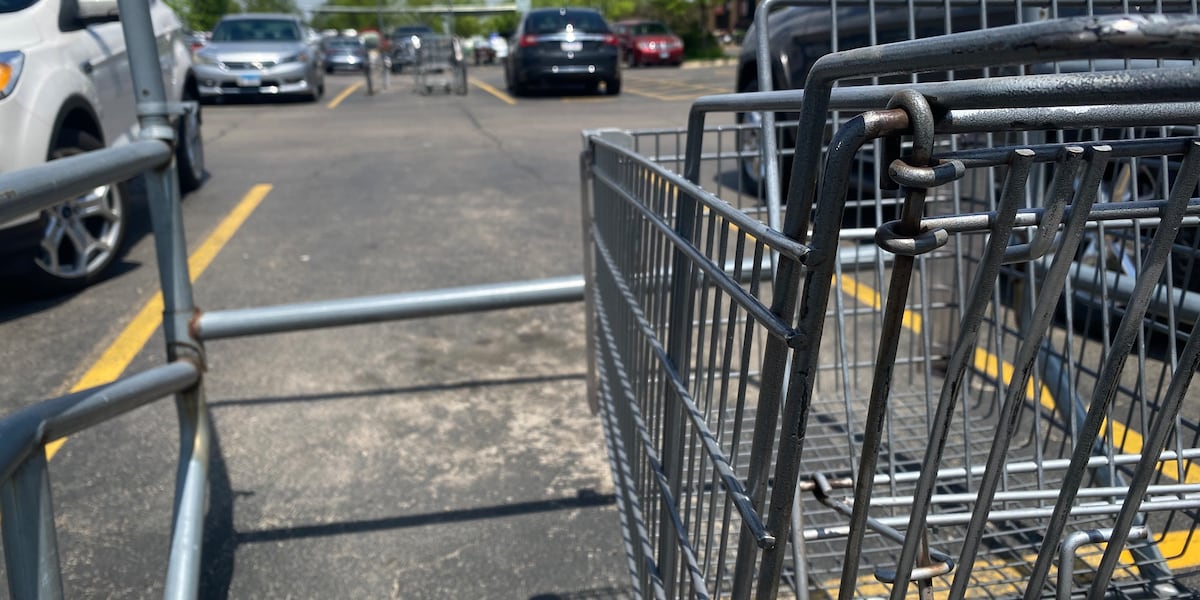The City of DeKalb needs money. The city has something like 10 gas stations. It also delivers residential parking permits for FREE :
https://www.cityofdekalb.com/1192/Residential-Parking-Permits
But instead, they are seriously considering a sales tax on GROCERIES 🤦
How about taxing the wealthy instead of food? Taxing cars is nice too.
Wealthy, in DeKalb? You won’t get any revenue that way. DeKalb is mostly just a university town. A lot of the people who go to that university commute from Rockford or the Chicago suburbs.
Northern Illinois leaders consider reinstating grocery sales tax at local level
Seems like it’s going to affect more than DeKalb, see the article title.
Regardless, I lived in a rural university town myself in the past - much more rural than DeKalb. There were plenty of rich people tucked away in their massive homes. At least enough to raise their taxes just a bit to generate 800k of revenue.
Tax literally anything instead of food, I say - groceries are high enough and not everybody struggling qualifies for food stamps.
You need to be careful though. The rich people in DeKalb are the farmers. Taxing them is taxing food.
Sounds like they copied their plans from the Party Against Citizens (a dutch comedy satire sketch, name says it all)
Nvm, they wouldn’t propose something instead of other taxes
Is local democracy functional in that city? Or is it one of those places where incumbents have made themselves impossible to remove?
Forget sprawl, groceries are driving the infrastructure costs. Eat less, then we need to build less? /s
Why don’t they build an ice skating rink
Are you referencing Parks and Recreation?
Since so many in the comments didn’t seem to read, the tl:dr is:
- There is currently a statewide sales tax in Illinois on groceries of 1% with some items (alcohol, candy etc.) exempt and taxed at the higher state sales tax rate
- The state is set to end this tax on 1/1/2026 but local municipalities can continue it
- Dekalb expects that loss of tax revenue to be impactful and is considering it at the local level
There are likely other ways they could make up the revenue but if they wouldn’t be implementing a new tax, just keeping the existing one going at a local level.
I’m not familiar with Dekalb but I went to college in a college town where the population doubled during the academic year. There were taxes and fees of higher rates designed to impact the student residents more than locals to make up for the loss of residents during the off time.
Groceries, such an old fashioned word. They are saying these days though, these groceries.
Devil’s advocate: The city needs money for services for everyone, cars aren’t used by everyone but everyone eats.
So evenly tax everyone to support everyone instead of proportionally (more money, more car) tax people to support everyone?
Disagree
Cars aren’t used by everyone but everyone paid to have road maintained.
Counterpoint: fuck cars.
…so how the fuck does it make sense to tax food?
Nowhere in that does it mention parking or gas taxes. Where did you pull that from?
From the article:
On Wednesday night, DeKalb County Board members began considering a county-wide 1% grocery tax.
It appears they changed the article contents? I looked and couldn’t find anything about making a parking fee or gas tax. Only that the state is removing a 1% grocery tax and is giving each county the option of keeping or removing the tax.
Maybe there’s another article or meeting minutes?
Make those poors pay for Frank Freeway’s car commute!
DeKalb is really shitty (sorry, that was out-of-pocket, I take it back)
I mean healthy foods are exempt from sales tax.
So it must be implicit that they’ll only tax unnecessary/unhealthy groceries like alcohol, tobacco, candy, eggs, and meat. I dont see a problem with this. We should be taxing these things anyway. But I wish the funds would be used directly to lower the cost of healthy foods like rice, beans, vegetables, fruits, flour, oats, etc











